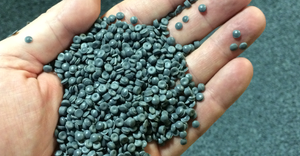Trash Tax Time Again
AS MY FAVORITE PHILOSOPHER once said, it's déjà vù all over again. Cash-strapped state legislators have visions of dollar signs when they see trash trucks and promptly file legislation to turn haulers into tax collectors. Michigan is the site of the latest battle. Supporters of a $7.50 per ton trash tax see the extra cost as the best way to stop Canadian garbage from being landfilled in Michigan. They claim the tax won't cost Michigan residents anything, and the tax revenues will fund local recycling programs. But let's see if their arguments make sense.
First, will the extra $7.50 per ton make Michigan prohibitively expensive for Canadian trash? No. Toronto has a fixed-price disposal contract. As a result, other landfill users will end up paying Toronto's share of the new tax. Because more than 70 percent of the trash landfilled in Michigan is generated in Michigan, guess who will pay. Tax advocates respond by trying to minimize the impact of the tax. They say it will be just pennies for the average Michigander. But the problem is that a “few” pennies per person add up to a lot of money if you are the municipal official who has to pay a city's share of the new levy.
Let's say that you are the mayor of Grand Home, Michigan, a town of 63,000 people. Based on state data, the town will be paying $210,000 in trash taxes. Where will the extra money come from? Will you raise taxes, or will you lay off some cops or firemen, or close a library? What if you are the president of a state university with 25,000 students? Their trash will generate about $26,000 in new taxes. Now you have to give this money to the state instead of using it to improve the quality of your university.
Tax advocates insist that Michigan's cities and towns will benefit from sending more money to Lansing. They promise the cash will be used to promote recycling in the Great Lakes state. But, the reality is that they are about to make Michigan residents the victims of a legislative drive-by shooting. Advocates got particularly creative, insisting that for every $1 paid in trash taxes, local governments will get $4 back. They don't explain exactly how this economic miracle will occur. They don't deny that Michigan towns and businesses generate most of the trash disposed in Michigan. They just say, “trust me.” Wow! That sounds like some of the investment offers I get in my e-mail. I only wish my 401(k) was that productive.
Ironically, the tax advocates are the same legislators who suspended revenue sharing with local governments last year. Maybe that explains why many elected officials just don't trust the legislature to deliver the money.
A trash tax is just another unfunded mandate on cities and counties. Trash is collected by local governments and private haulers, and taken to landfills owned by the public or private sector. Despite the promises of more money back, despite the demagoguery of “make the haulers pay,” the reality is that local governments and private haulers will raise rates, and residents and businesses will bear the burden of yet another tax.
On a separate note, Rock Hill, S.C., officials have dropped the commercial garbage tax that would have been imposed on all local businesses, whether or not they used the city as a hauler [See “Fair Competition,” Waste Age May 2005, page 22]. Now they just want to force businesses to get the city's permission before contracting with a private hauler. When will they finally decide to compete on price and service instead of relying on compulsion to get customers?
Opinions in this column do not necessarily reflect those of the NSWMA or the EIA. E-mail the author at: [email protected]
The columnist is state programs director for the Environmental Industry Associations, Washington, D.C.
About the Author
You May Also Like




